Dressed in jeans and t-shirts they display their emotion, their difficulty in speaking, their tears. Two by two, they personify stories of exclusion and suffering, but also ones of friendship and mutual support. They prefer to speak of “bonds of friendship.” In the front row the President of the French Republic Emmanuel Macron and his wife Brigitte are listening to their testimony. It marked the opening of the President’s meeting with the Catholic Church for the first time in the history of the country whose national banner is “laicité”. Macron arrived at the Collège des Bernardins at the end of a hectic week, violently put through his paces probably for the first time since his election a year ago by a nation-wide protest movement that is shattering the Country with strikes and demonstrations involving various sectors, from transport to university. France is called to face the consequences of reforms that triggered hostility and concern especially on the part of the weakest social brackets.
 Hardships, poverty, exclusion, voiced by six witnesses in the aisles of the Collegè. The two siblings Samuel and Florent, from the Office chrétien des personnes handicapées (OCH), said that the “violence” of disability takes the shape of “loneliness, exclusion, combined with glances of rejection and mistrust.” They ask “to grant disability the right place it deserves.” It’s a source of richness – they said – and it would be unfair to strip it from society.” There’s the story of friendship between Vanina and Charles. She fell into poverty and met him, a young volunteer (32) from the San Vincenzo community, on the street. They never left each other since. Then Martine took the floor. She fell into poverty and loneliness after having lost her job. She spoke of how difficult it is to live in a state of exclusion and how important it was to have met the volunteer workers of the Association pour l’Amitié, who opened the doors of dignity and friendship to her.
Hardships, poverty, exclusion, voiced by six witnesses in the aisles of the Collegè. The two siblings Samuel and Florent, from the Office chrétien des personnes handicapées (OCH), said that the “violence” of disability takes the shape of “loneliness, exclusion, combined with glances of rejection and mistrust.” They ask “to grant disability the right place it deserves.” It’s a source of richness – they said – and it would be unfair to strip it from society.” There’s the story of friendship between Vanina and Charles. She fell into poverty and met him, a young volunteer (32) from the San Vincenzo community, on the street. They never left each other since. Then Martine took the floor. She fell into poverty and loneliness after having lost her job. She spoke of how difficult it is to live in a state of exclusion and how important it was to have met the volunteer workers of the Association pour l’Amitié, who opened the doors of dignity and friendship to her.
 “We wanted our friends who experienced situations of suffering and hardship to be with us today” said the President of French bishops Msgr. Georges Pontier, addressing President Macron. “Their experiences are marked by vulnerability and fragility. Some of these people find no meaning to life. But to us facing human vulnerability means recognizing that the greatness of a society is measured by its ability to care for its weakest brackets.”
“We wanted our friends who experienced situations of suffering and hardship to be with us today” said the President of French bishops Msgr. Georges Pontier, addressing President Macron. “Their experiences are marked by vulnerability and fragility. Some of these people find no meaning to life. But to us facing human vulnerability means recognizing that the greatness of a society is measured by its ability to care for its weakest brackets.”
Monsignor Pontier’s address focused on this fundamental conviction, encompassing various themes: the States General of bioethics (ongoing), the family, euthanasia, migration, as well as “the scourge of anti-Semitism”, whilst recalling the death of Mireille Knoll, and episodes of Islamophobia.
 “Our goal is not to satisfy particular interests. We are worried for the fate of the most disadvantaged among us, those with no future prospects.” The president of French bishops voiced “the cries of those with no job or decent housing”; the “desperation of youths without plans and without a future, some of whom are tempted by violent options, others by delusional forms of trafficking that lead nowhere, or by the consumption and smuggling of drugs that ultimately destroy them.” He concluded with the proposal of restarting with the word “equality”, displayed on the Republican flag. “Instead of declining, inequalities in education, learning, employment, wages, in accessing public services, are mounting up.”
“Our goal is not to satisfy particular interests. We are worried for the fate of the most disadvantaged among us, those with no future prospects.” The president of French bishops voiced “the cries of those with no job or decent housing”; the “desperation of youths without plans and without a future, some of whom are tempted by violent options, others by delusional forms of trafficking that lead nowhere, or by the consumption and smuggling of drugs that ultimately destroy them.” He concluded with the proposal of restarting with the word “equality”, displayed on the Republican flag. “Instead of declining, inequalities in education, learning, employment, wages, in accessing public services, are mounting up.”
“Addressing the needs of the poor is first step for the building of a society based on solidarity, fairness, mutual support, thereby recovering citizens confidence.”
 Macron is listening. He is holding in his hands the written text of an over-45 minutes speech. He thanks the bishop for the invitation and starts by paying homage to the memory of Colonel Arnaud Beltrame who died to save the life a woman in the terror attack in. His example – he said – shows the extent of gestures guided by “Catholic faith.” Macron also remembered Father Jacques Hamel, killed in a church on the outskirts of Rouen while celebrating Mass. It is also thanks to the initiatives of associations like l’Oeuvre d’Orient (for persecuted Christians in Middle Eastern countries), Caritas and Sant’Egidio, that France opened humanitarian corridors in conjunction with the Bishops’ Conference and the Federation of Evangelical Churches.
Macron is listening. He is holding in his hands the written text of an over-45 minutes speech. He thanks the bishop for the invitation and starts by paying homage to the memory of Colonel Arnaud Beltrame who died to save the life a woman in the terror attack in. His example – he said – shows the extent of gestures guided by “Catholic faith.” Macron also remembered Father Jacques Hamel, killed in a church on the outskirts of Rouen while celebrating Mass. It is also thanks to the initiatives of associations like l’Oeuvre d’Orient (for persecuted Christians in Middle Eastern countries), Caritas and Sant’Egidio, that France opened humanitarian corridors in conjunction with the Bishops’ Conference and the Federation of Evangelical Churches.
“Indeed – Macron pointed out – France has grown stronger thanks to Catholics’ commitment.” It’s President Macron’s message to the French bishops, which he repeated several times. It’s almost as if he decided to be present for this reason:
“I solemnly ask you not to feel that you are on the sidelines of the Republique but to continue carrying out the role you have always had.”
And while Europe preferred to eradicate all references to Christian roots from its Constitution “I firmly believe – Macron pointed out – that the Catholic seed can and must continue making our Nation thrive. “That’s why I’m here: I want you to know that the Republique expects three gifts from the Catholic community: the gift of your wisdom, of your commitment and of your freedom”.










